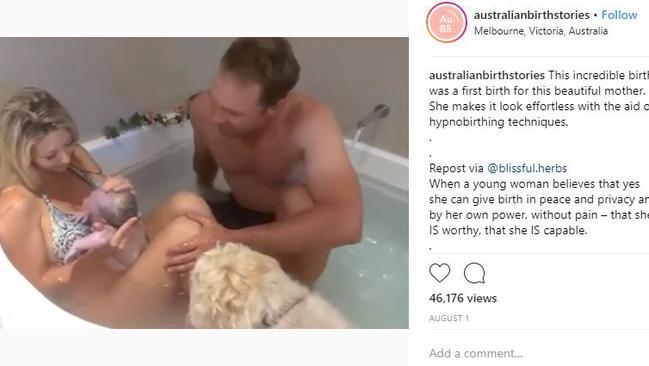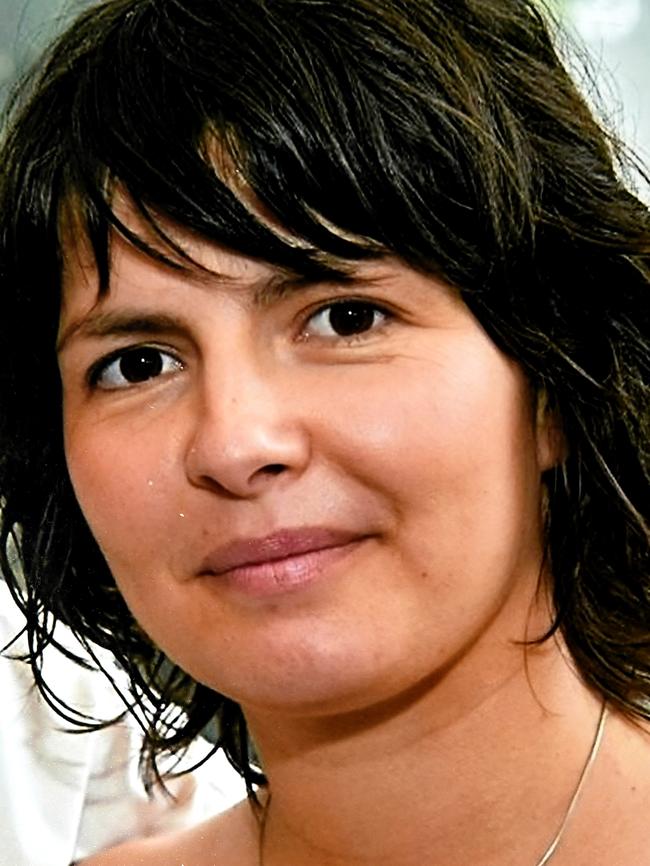A blog is not a medical degree
HAVING a mummy blog doesn’t make you a doctor, so why are so many of these so-called influencers handing out dubious advice about everything from birth to vaccines, asks Louise Roberts.
Rendezview
Don't miss out on the headlines from Rendezview. Followed categories will be added to My News.
THERE is a crucial issue central to this phenomenon of the glossy mummy blogger.
She is primarily an expert in one thing — self-promotion. Not medicine, not science and often common sense is a luxury too.
The better she looks, the more clicks, the more dollars.
Often she and her blogger pals are the darlings of supplement companies too, their cut through to potential customers invincible.
So would you squeeze out your first born in a pool at home, unsupervised by a midwife or medical team, while wearing your favourite bikini top and your dog looking on?
This week it was revealed in this newspaper that a mummy blogger did just that, filming her home birth and then posting it on the Instagram account, australianbirthstories.
When the primary birth plan should be the safest arrival possible of your precious new child, it begs the question why would you add any risk at all to that delicate situation?
Judging by the footage, mother and baby are doing well and that is welcome news.
Yet the narrative of motherhood is always brewing around the rights of the mother. Her baby, her body.
The race to push both boundaries and babies has created a cottage industry of bloggers and wellness experts who are anything but.

It’s not empowering.
This is not a case of I am woman hear me roar.
And to the impressionable, who think Dr Google is a suitable diagnostic tool, these messages are confusing, applying an Instagram filter to situations where we should be applauding science and expertise rather than dismissing or even diminishing it.
This veneer of authority also translates to parents who put their kids on trendy, narrowly defined diets when there is no legitimate nutritional nor medical reason to do so. Or shun childhood vaccines because “they don’t work”.
Again, whose rights are more important? I would argue that of a baby or child — but as a conventional parent, I might be part of a minority who shuddered at the recent fad of feeding bone broth to a baby. I support the solidarity of women and what they can offer each other via enduring friendship or a mothers’ group, for example.
What I don’t endorse is the shameless self-promotion that has the potential to cause harm.
A survey by Murdoch University, as referenced in The Daily Telegraph this week, said that less than 35 per cent of new mums regard their GP as the primary source of health information.
That is alarming. There is no other way to look at it.
Meanwhile the dog, dad, water birth and bikini video has been viewed more than 45,000 times.
The footage shows mum resting her new baby on her chest, with the besotted dad caressing his new child seemingly moments after he or she has arrived in the world.
But would the person holding the smartphone nor the freshly minted mum and dad with stars in their eyes have known if something was going wrong?
The water mum said: “Wanting to be in control of my body and birth is the reason I decided to have my baby at home.
“I knew that if I felt safe and supported in a loving environment, that the birth would be easy.
“And it was — easy and pain-free.”
Great for you, but beware any mum-to-be watching.
Homebirth can be safe given the right circumstances and Australia might have one of the world’s lowest peri-natal mortality rates, but that’s thanks to science.
Obstetrician Dr Alexander Polyakov told this newspaper of his real fear that “ridiculous” health beliefs were being fostered after absorbing information online.
And he’s right of course. In our drive to be on-trend and suspicious of the traditional medical safety nets, bloggers promoting “natural flu shots” get traction.

Homemade remedies are not medicines — let’s be clear about that.
And a smooth labour can turn into chaos in a split second. Again — why take the risk?
Just consider the case of Melbourne mother Caroline Lovell who died at the Austin Hospital in January 2012 after giving birth to her second child at home in a birthing pool.
Coroner Peter White found the 36-year-old suffered a post-partum haemorrhage but it was not picked up by the midwife in charge, Gaye Demanuele.
Mrs Lovell reportedly begged multiple times for an ambulance to be called to the couple’s home, claiming that she was dying. Left in the birthing pool for more than an hour after delivery, she then fell unconscious.
“I find that this death was preventable,” ruled Mr White, who also suggested a public education campaign for people considering a home birth.
I have given birth twice and it was painful, undignified and one of the most confronting things I have ever faced.
It was worth it, of course, when my new baby was placed into my exhausted arms and I fell in love with my son, and a few years later, my daughter.
A midwife I spoke to told me this: “I look at this so-called blogger advice and I am sitting there listening to pregnant women quote it to me, and I wonder how we got to the point where they think doctor and medical science doesn’t know best.”
For every shiny new mum and dad posing in their pretty bath with their squeaky clean infant and their shaggy dog looking on, there is another tableau which offers anything but a happy ending.
It could be the new parents left with empty arms, or in the case of Caroline Lovell, children who will grow up without their mother.
They don’t call these bloggers — many of whom have no qualifications other that the University of Life — “influencers” for nothing. And that’s what worries me.
They are influencing the thinking of women who might then put themselves or their babies in harm’s way.
And that does not justify any amount of followers or likes.
